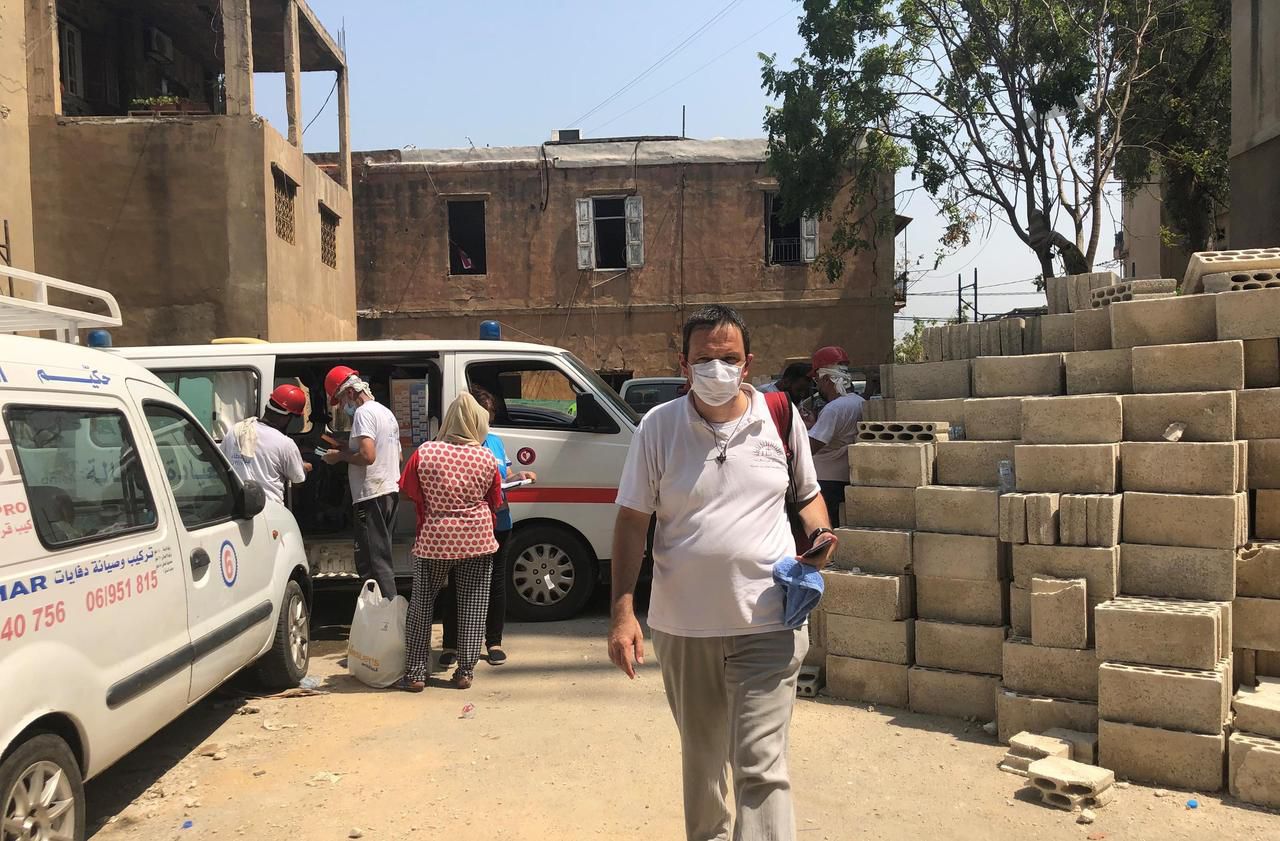On August 4, Father Gabriel Khairallah receives a visitor when the windows of his office collapse, blown out by the double explosion that shakes the Lebanese capital.
That day, 1.5 km from the port, the solid wooden doors of the Saint-Joseph church in Beirut fly, its stained-glass windows shatter.
The priest, responsible for the social office of the Jesuits in Lebanon, immediately thinks of the multipurpose room.
“We have to clean it up before tomorrow.
Every day, hot meals and provisions are distributed to the poor.
In addition to the economic and political crisis, which gave rise to a deep popular protest movement, the Covid-19 epidemic has increased the need for food aid.
This August 4, it is about to become even more screaming.
Since then, the social center, also equipped with a dispensary, has doubled its daily capacity, 500 dishes cooked at home by ladies of the parish.
“This misery… It's a slap in the face that we get every day,” says Magali, a volunteer.
But we must ensure.
"Father Gabriel participated in the demonstrations of October 2019. He tirelessly denounces the corruption of power, militates" for a secular state ".
“The state is below everything.
There was no aid plan for the victims, reports the one who also teaches literature at Saint-Joseph University and Sciences-po.
It is associations, NGOs, local and international that act.
Emmanuel Macron, who was returning this Monday, August 31, to Beirut, had also himself clearly called, during his first visit after the explosion, that aid "be directly channeled to the populations, to the NGOs", to avoid… “opacity” and “diversion”.
The car of Samar Chamoun, social worker at Saint-Joseph University, arrives at avenue Charles Hélou.
View of the port of Beirut, its piles of jails and rubble, its gutted containers.
There, except in the area of the investigation left as it is, 400 French soldiers and 400 Lebanese soldiers work "hand in hand", "in temperatures of up to 40 degrees", says French colonel Antoine de La Bardonny.
"Some 22 hectares out of 35 have already been cleared," he explains, with the aim of "freeing up storage spaces as quickly as possible" for the goods which are once again unloaded on the eastern docks.
The port, explains Bassem El Kaissi, its new appointed director, is now operating at half of its capacity.
Not far away, scaffolding, concrete blocks and, everywhere, young volunteers wearing hard hats.
Karantina, a popular district known as the Quarantine, looks like a beehive.
"We are rebuilding the district abandoned by the state," says Thea, 17, one of the 200 to 300 small hands of the association Offerjoie.
“This is my hope!
», Smiles Father Gabriel.
A few meters further, two men are busy repairing the electricity meters in the hall of a building, now deprived of doors and windows.
Samar Chamoun applauds: “It is these young people, who have not known war, who have changed the ground.
They want change.
And they took their broom.
"
New prime minister greeted with skepticism
Like Thea, Catherine, 25, took part in the protests, but from France, where she studies, with the Meghterbin mejtemiin collective, a united Lebanese Diaspora.
Sunday August 30, 24 hours before the arrival of Emmanuel Macron, Michel Aoun called for the proclamation of a “secular state”.
But Catherine, like Father Gabriel Khairallah, who preferred to read Simone de Beauvoir's "Second Sex" as a sign of boycott, did not listen to the Lebanese president.
“They are hypocrites, liars.
I do not think they are part of the solution, ”slices the young woman.
And Emmanuel Macron?
“Personally, I don't want an international intervention nor that he discusses with the people who are in place.
But her visit raises hope among the population, ”she observes.
Tarpaulins and panels, instead of windows, obscure Sylvie's small apartment.
Every day, at 6 p.m. (at the time of the explosion of August 4), the old lady is seized with anguish.
On television, the face of the new Prime Minister, just appointed, Moustapha Adib appears.
“How to get rid of this clique… breathes Gabriel Khairallah.
They cling to power.
It all depends on the ministers who are going to be appointed, but that does not bode well.
"
Newsletter - Most of the news
Every morning, the news seen by Le Parisien
I'm registering
Your email address is collected by Le Parisien to enable you to receive our news and commercial offers.
Learn more
The new head of government undertakes to conclude an agreement with the International Monetary Fund (IMF), goes to a neighborhood devastated by the explosion. A gesture that his predecessor had not made. Samar confides his doubts. "I do not know if this Prime Minister can make the reforms ... We can no longer bear the current situation, we no longer trust the state. "

